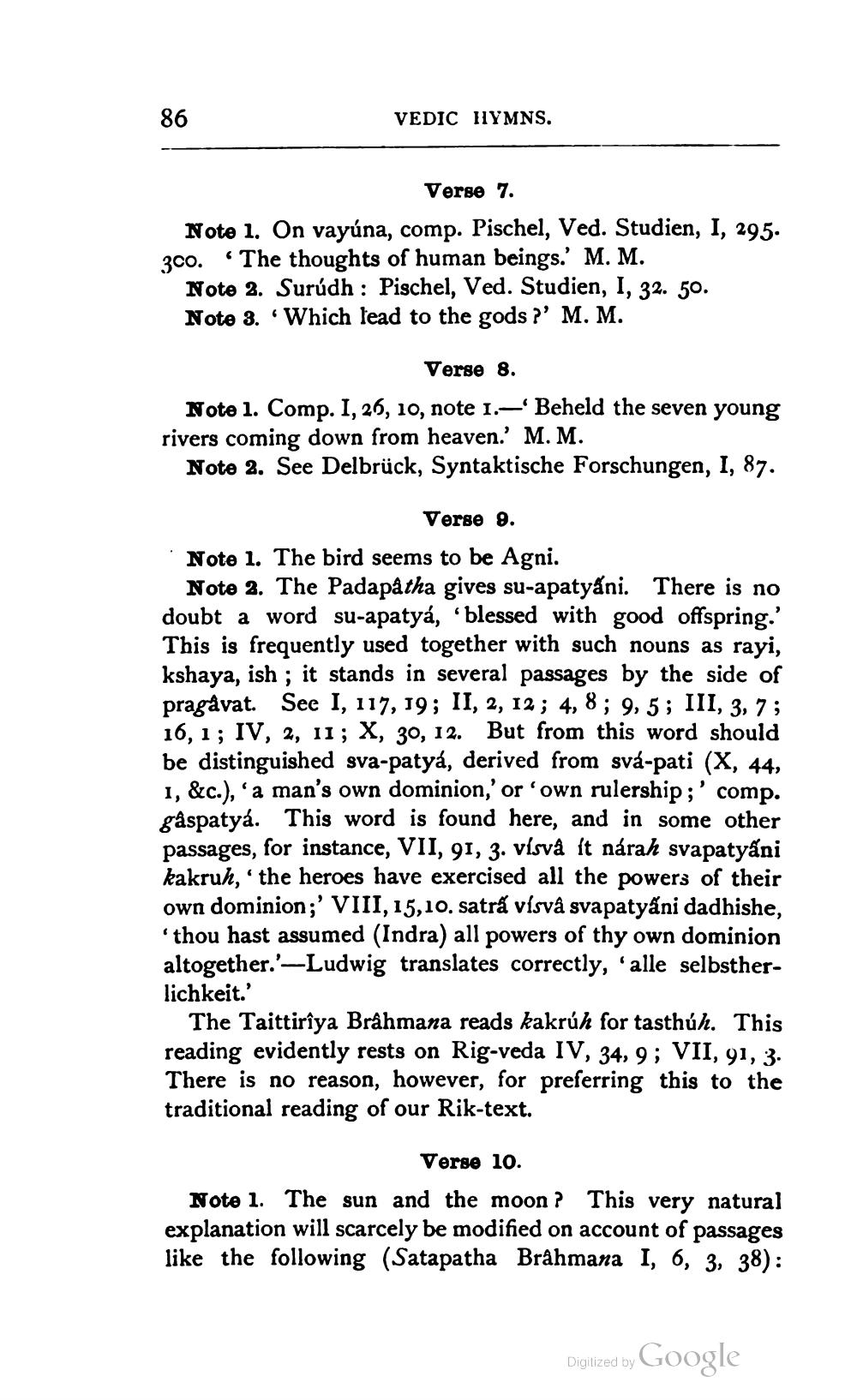________________
86
VEDIC HYMNS.
Verse 7. Note 1. On vayúna, comp. Pischel, Ved. Studien, I, 295. 300. “The thoughts of human beings.' M. M.
Note 2. Surúdh : Pischel, Ved. Studien, I, 32. 50. Note 3. Which lead to the gods ?' M. M.
Verse 8. Note 1. Comp. I, 26, 10, note 1.—' Beheld the seven young rivers coming down from heaven.' M. M.
Note 2. See Delbrück, Syntaktische Forschungen, I, 87.
Verse 9. Note 1. The bird seems to be Agni.
Note 2. The Padapatha gives su-apatyáni. There is no doubt a word su-apatyá, 'blessed with good offspring.' This is frequently used together with such nouns as rayi, kshaya, ish; it stands in several passages by the side of pragåvat. See I, 117, 19; II, 2, 12; 4, 8; 9, 5; III, 3, 7; 16,1; IV, 2, 11; X, 30, 12. But from this word should be distinguished sva-patyá, derived from svá-pati (X, 44, 1, &c.), 'a man's own dominion,' or 'own rulership;' comp. gåspatya. This word is found here, and in some other passages, for instance, VII, 9I, 3. viva ít nárah svapatyani kakruh, 'the heroes have exercised all the powers of their own dominion;' VIII, 15,10. satrā vísvå svapatyäni dadhishe, 'thou hast assumed (Indra) all powers of thy own dominion altogether.'-Ludwig translates correctly, 'alle selbstherlichkeit.'
The Taittirîya Brâhmana reads kakrúh for tasthúh. This reading evidently rests on Rig-veda IV, 34, 9; VII, 91, 3. There is no reason, however, for preferring this to the traditional reading of our Rik-text.
Verse 10. Note 1. The sun and the moon? This very natural explanation will scarcely be modified on account of passages like the following (Satapatha Brahmana I, 6, 3, 38):
Digitized by Google




